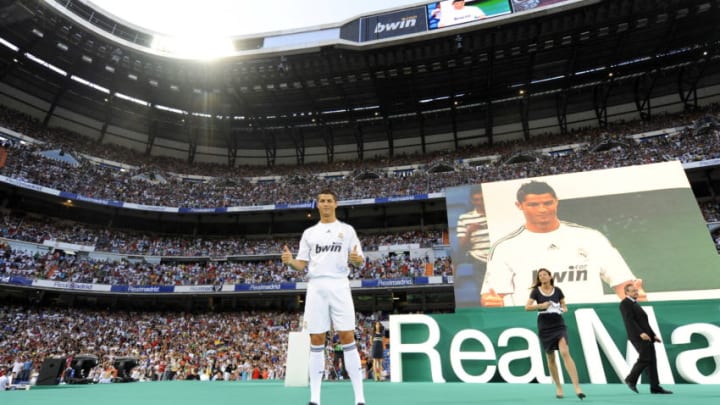The prices paid for players on the transfer market has expanded exponentially in recent years, but that bubble may have burst as soccer clubs cope with the coronavirus.
Some might argue it started with Cristiano Ronaldo’s €94 million move to Real Madrid back in 2009. It was, after all, a transfer which smashed the previous record that had stood for eight years since Zinedine Zidane’s €77.5 million switch to the same team.
Others may pinpoint Neymar’s blockbuster €222 million switch to Paris Saint-Germain almost three years ago as the moment the inflation of soccer’s transfer market was unstoppable.
More accurately, it’s at a slightly lower level where soccer’s gross inflation of the past decade or so is most evident.
It was in Barcelona’s €160 million signing of Philippe Coutinho which raised the price of every attacking midfielder close to the Brazilian’s quality and in Manchester United’s £80 million signing of Harry Maguire last summer, a transfer which subsequently lifted the valuation of every half-adequate center-back in the Premier League.
This sort of inflation appeared set to never end. It was a boom without a bust, apparently. Now, though, the picture is very different as soccer, and society in a wider sense, faces up to the devastating impact of the global coronavirus pandemic which has seen every major competition and league suspended until further notice.
No matches means, for most clubs, no revenue and so the prospect of another summer of transfer market inflation now seems remote. Instead, there are projections of a contraction. The transfer speculation continues to swirl, but almost out of habit more than anything else. Clubs almost certainly won’t be spending as much on players.
“The current situation is a threat, but also a chance to change the coordinates,” former Bayern Munich president Uli Hoeness said on the situation. “You can’t dictate it, but transfer fees in excess of €100 million will be a thing of the past for the next few years. The transfer fees will drop and will not return to the current level in the next two, three years. All countries are affected. There will most likely be a new footballing world.”
Hoeness’ remarks may prove to be prescient. He isn’t the only influential figure to have suggested a new normal may emerge from this most unprecedented of scenarios.
Juventus sporting director Fabio Paratici has predicted the sport will soon adopt an NBA-style trade structure to replace the current transfer market system. “There will be lots of trades, a situation that will bring football closer to the NBA,” he said in an interview.
Indeed, it’s possible that a squeeze on the finances of Europe’s biggest clubs could result in a different sort of marketplace. Teams and managers will still want to retain the ability to sign new players and get rid of unwanted ones, so if the money is no longer there for the old system to work a new structure will be implemented. European soccer’s free market economy will ensure it.
Of course, the other scenario is that transfer fees are depressed. A player deemed to be worth €100 million before the coronavirus crisis might now be valued at just half that. It’s already been speculated that German clubs could benefit if things play out this way given the Bundesliga’s stronger organic financial footing. This is where their stringent rules on fan ownership, adjudged to have held their clubs back as the market has inflated, could hold them in good stead.
One way or another it seems highly likely that soccer will be changed by what it is currently going through. The inflated spending of the last decade or so has been exposed as having taken place on the narrowest of margins. Any disruption in cash flow might have been enough to force change in the game, let alone that could see clubs go months with no revenue. When cuts are made, megatransfers might have to be one of the first things to go.
